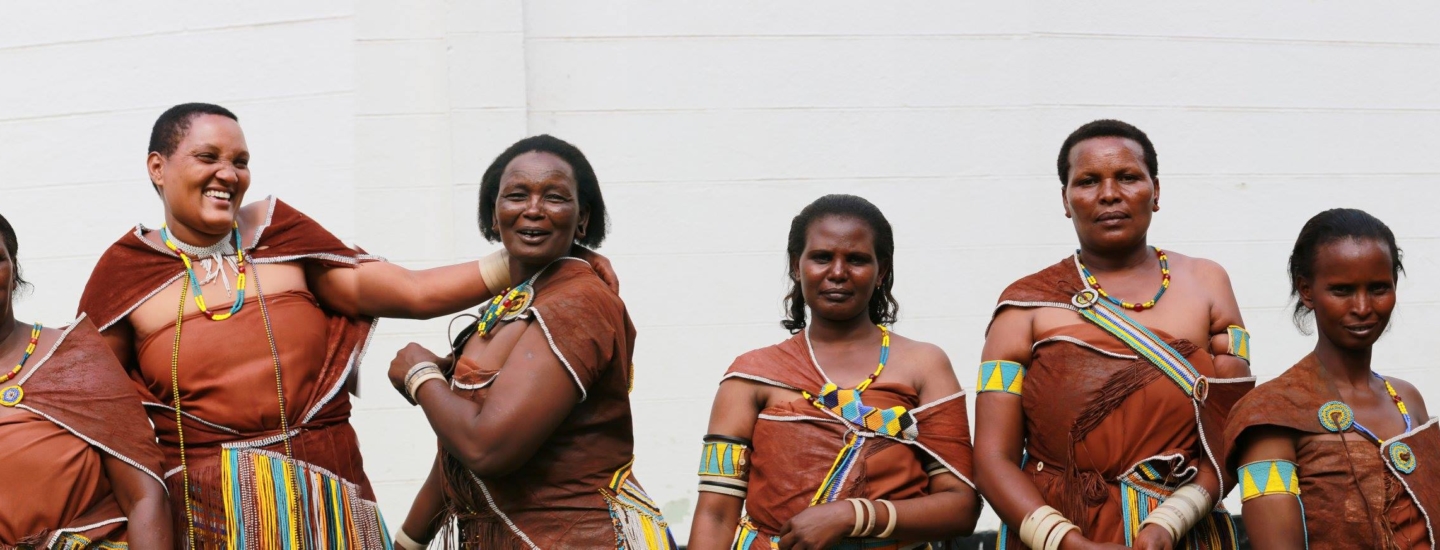Project
Enhancing Recognition for Indigenous Communities in Tanzania
-
Amount Funded
179,637 EUROProject Duration
01 Aug 2017 - 31 Jan 2019 -
-
Lead organisation
-
PINGO’s forum is a human rights and development umbrella NGO with a network of about 52 member organisations. PINGO was established in 1994 and formally registered in 1996 seeking to advocate and develop competencies for sustainable livelihoods and development of pastoralists and hunter-gatherer communities in Tanzania.
PINGO’s forum endeavours to amplify the voices and foster the interest of pastoralists and hunter-gatherers by advocating for change through advocating in the following areas:
- Good governance and human rights (social, economic, political and cultural rights);
- Gender justice;
- Capacity Building of community and its member CSOs and key stakeholders;
- Networking with stakeholders with similar objectives; and,
- Working on Climate Change and other issues that affect the livelihood sustainability of the pastoralists and hunter gathers.
PINGO’s vision is a just community of pastoralists and hunter-gatherers with sustainable, recognised, and respected rights, and the mission is to create a lasting solution for injustices and poverty to pastoralists and hunter-gatherer communities.
-
Organisation
PINGO’s forum is a human rights and development umbrella NGO with a network of about 52 member organisations. PINGO was established in 1994 and formally registered in 1996 seeking to advocate and develop competencies for sustainable livelihoods and development of pastoralists and hunter-gatherer communities in Tanzania.
PINGO’s forum endeavours to amplify the voices and foster the interest of pastoralists and hunter-gatherers by advocating for change through advocating in the following areas:
- Good governance and human rights (social, economic, political and cultural rights);
- Gender justice;
- Capacity Building of community and its member CSOs and key stakeholders;
- Networking with stakeholders with similar objectives; and,
- Working on Climate Change and other issues that affect the livelihood sustainability of the pastoralists and hunter gathers.
PINGO’s vision is a just community of pastoralists and hunter-gatherers with sustainable, recognised, and respected rights, and the mission is to create a lasting solution for injustices and poverty to pastoralists and hunter-gatherer communities.
-
Project
This project aims at enhancing recognition and self-determination of pastoralists and hunter-gatherers, capable of influencing policies and decision-making processes. It is addressing the following problems:
- A lack of recognition and inclusion (livelihood and traditional knowledge);
- Poor capacity to influence decision-making processes;
- Poor governance (such as the weak rule of law, accountability, administration of justice and transparency); and
- Finally, social norms and harmful cultural practices.
The project has two specific objectives:
The rights of pastoralists and hunter-gatherers are recognised and reflected in governance principles, administration of justice, policies, and laws with enhanced capacity to influence decision-making on issues of human rights;
The socio-economic and political rights of women, youth and elders are promoted and protected by indigenous communities to enhance self-determination.
-
This project aims at enhancing recognition and self-determination of pastoralists and hunter-gatherers, capable of influencing policies and decision-making processes. It is addressing the following problems:
- A lack of recognition and inclusion (livelihood and traditional knowledge);
- Poor capacity to influence decision-making processes;
- Poor governance (such as the weak rule of law, accountability, administration of justice and transparency); and
- Finally, social norms and harmful cultural practices.
The project has two specific objectives:
The rights of pastoralists and hunter-gatherers are recognised and reflected in governance principles, administration of justice, policies, and laws with enhanced capacity to influence decision-making on issues of human rights;
The socio-economic and political rights of women, youth and elders are promoted and protected by indigenous communities to enhance self-determination.
-
The significant advocacy outcome of this project was a statement issued by the President of the United Republic of Tanzania on 15 January 2019, acknowledging the long-time suffering of pastoralists being evicted from their lands. He highlighted that the seven responsible ministries must work together to resolve land conflicts affecting pastoralists in the country. Additionally, the President agreed to meet with marginalized pastoralists that year.
This has changed the behaviours and perception of the public and duty-bearers at local government levels regarding the rights of marginalized pastoralists.
The project created understanding and awareness among pastoralist groups on land and human rights issues. Now, each community has some leaders who, whenever a problem emerges, are ready to meet and talk to duty-bearers and members of parliament. Communities also know their rights and can confidently speak to the media and address the public. They know how to document and report issues – for instance, in the case of Vilima Vitatu when their homesteads were burnt. They recorded and uploaded the clips on social media.
During the project implementation, Pingo facilitated dialogues between community representatives and policymakers on issues affecting them, which led to the following:
- The statement of the President halted all plans to evict pastoralists from their lands and ordered that wildlife conservation areas laws be reviewed within a month and the proposed Bill be tabled in the next Parliamentary budget session.
- The District Commissioner of Hai stopped all acts done by KADCO that violated community rights and promised to institute a commission to investigate the matter. In contrast, the permanent secretary promised to inform the minister of the matter so that further action could be taken.
- The parliament resolved in unison that the Ministry of Natural Resources and Tourism must halt the arbitrary boundary beacons planting in villages with immediate effect. It also resolved the confiscation of livestock, unlawful fines and killing of livestock.
The proposed New Wildlife Conservation Bill 2017 was struck out at the Committee level, which prevented a second reading of the Bill from being read in Parliament. This is a result of Pingo’s engagement, which linked communities with policymakers who made presentations of facts and on existing gaps in the proposed Bill. The outcome is policies/laws that are pro-pastoralists (marginalized group).



